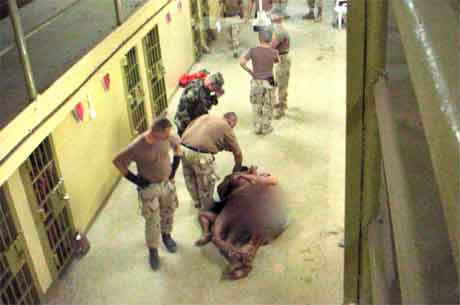Taken from: Ar-Rahiq al-Makhtum by Safi ur-Rahman Mubarakpuri
'Anas said: "I have never witnessed a day better or brighter than that day on which the Messenger of Allah (saws) came to us; and I have never witnessed a more awful or darker day than that one on which the Messenger of Allah (saws) died on." [Mishkat al-Masabih, 2/547]
The Start of the Disease
On Monday the 29th of Safar in the eleventh year of Hijrah, he participated in funeral rites in al-Baqi'.
On the way back he had a headache, his temperature rose so high that
the heat effect could be felt over his headband. He led the Muslims in
prayer for eleven days though he was sick. The total number of his sick
days were either thirteen of fourteen.
The Last Week
When his sickness grew severe he asked his wives: "Where shall I stay tomorrow?" or "Where shall I stay?"
They understood what he wanted. So they allowed him to stay wherever he
wished. He moved to 'A'ishah's room leaning - while he was walking - on
al-Fadl ibn al-'Abbas and 'Ali ibn Abi Talib. Head banded as he was, he
dragged his feet till he came into her abode. It was there that he
spent the last week of his life.
During that period, 'A'ishah used to recite al-Mu'awwidhat (Chapters 113 and 114 of the Qur'an) and other supplications which he has already taught her.
Five Days Before Death
On Wednesday, five days before he died the Prophet's temperature rose
so high signalling the severness of his disease. He fainted and
suffered from pain. "Pour out on me seven Qirab (water skin pots) of various water wells so that I may go out to meet people and talk to them." So they seated him in a container (usually used for washing) and poured out water on him till he said: "That is enough. That is enough."
Then he felt well enough to enter the Mosque. He entered it
band-headed, sat on the pulpit and made a speech to the people who were
gathering together around him. He said: "The curse of Allah falls upon the Jews and Christians for they have made their Prophets' tombs places of worship." [Sahih al-Bukhari, 1/62; Muwatta' Imam Malik, p. 360] Then he said: "Do not make my tomb a worshipped idol." [Muwatta' Imam Malik, p. 65]
Then he offered himself and invited the people to repay any injuries he might have inflicted on them, saying:
"He whom I have ever
lashed his back, I offer him my back so that he may avenge himself on
me. He whom I have ever blasphemed his honour, here I am offering my
honour so that he may avenge himself."
Then he descended, and performed the noon prayer. Again he returned
to the pulpit and sat on it. He resumed his first speech about enmity
and some other things. A man then said: "You owe me three Dirhams." The
Prophet (saws) said: "Fadl, pay him the money." He went on saying:
"I admonish you to be
good to al-Ansar (the Helpers). They are my family and with them I found
shelter. They have acquitted themselves credibly of the responsibility
that fell upon them and now there remains what you have to do. You
should fully acknowledge and appreciate the favour that they have shown,
and should overlook their faults."








